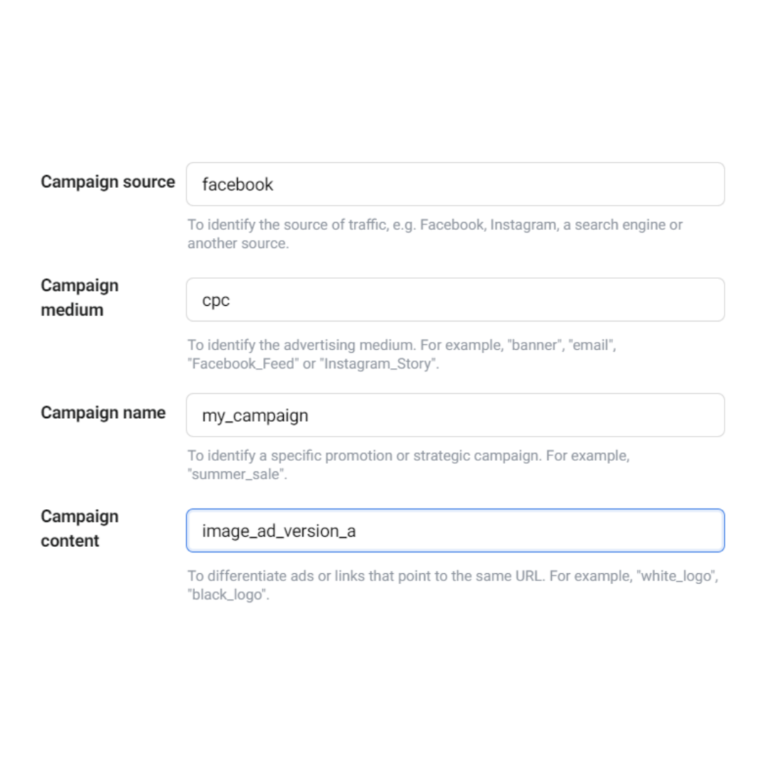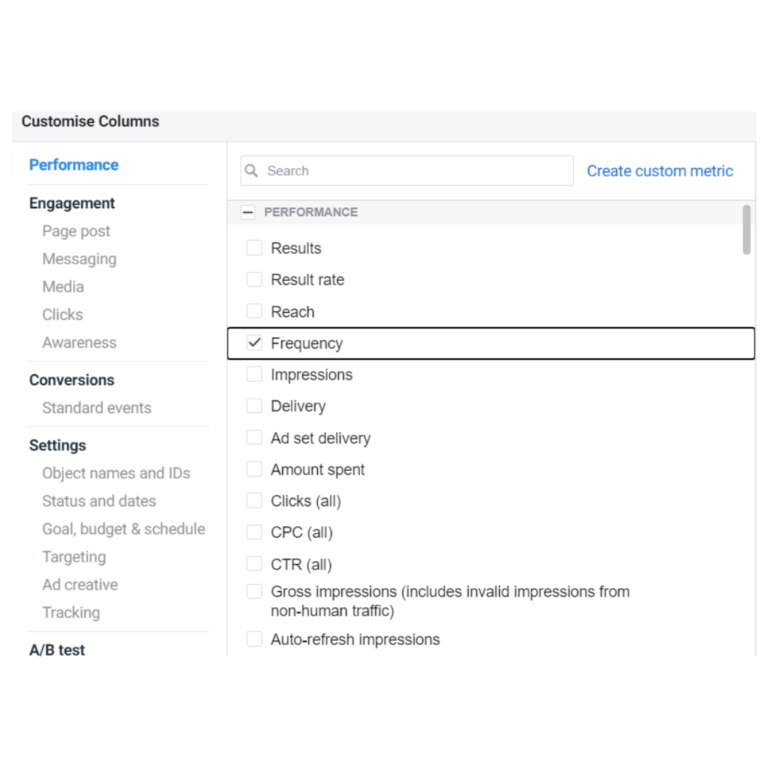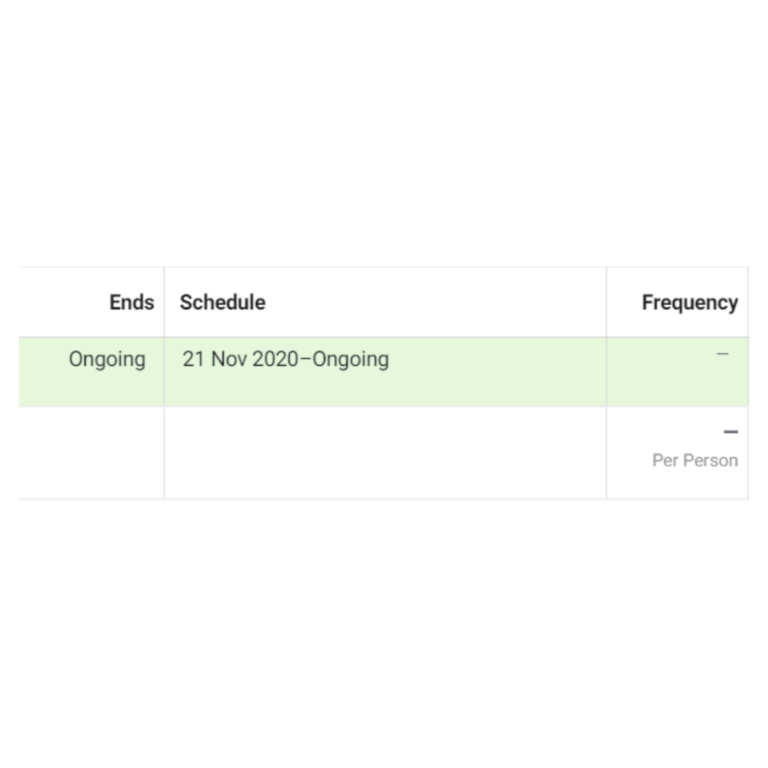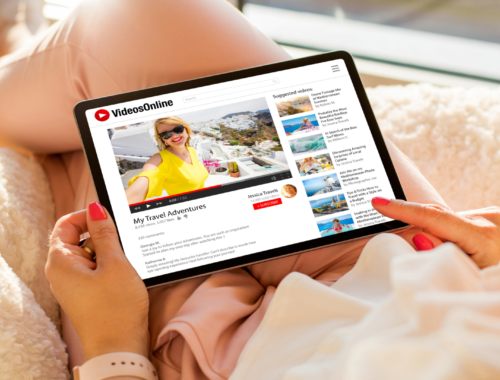Facebook Ads Mistakes You Could Be Making

Facebook ads is a great way to get your brand’s name out there, as well as a way to generate new business. That being said, as great as Facebook ads is, there is the potential for mistakes to be made and if these mistakes are left unchecked it can be costly. In the below I go over the Facebook Ads mistakes you could be making within your campaigns.

Not Tracking Campaign Performance
Tracking is one of the most if not THE MOST important aspect to be implementing within your account. Without this you are blindly optimising/managing your campaigns. This can lead to poor optimisation changes, pushing too much spend towards under performing adsets and ultimately wasting your budget!
There are a couple of different ways you can track your ads both within and off the platform, one of these being the Facebook Pixel.
The Facebook Pixel is a piece of code that goes on your site and can track the actions of a visitor, whether that be page views, add to cart, purchases, leads or sign ups etc. Once implemented on your site, these actions can be tracked via the event setup tool or by editing the code to track standard or custom events.
I have linked the help pages for the above here in case you would like to read more information on this.
If you are tracking simple button clicks, click to call buttons or form submissions, the simplest approach would be to track these via the event setup tool. In the instance you are running an ecommerce site where the user has the potential to carry out a number of transactions with different values, I would recommend tracking this via your pixel code.

You can track offline performance by adding UTM parameters to your ads, UTM parameters allow traffic data from your ads to pull into 3rd party platforms such as Google Analytics. I have provided an example of how you can implement UTM parameters below:
Campaign source = Facebook
Campaign medium = CPC
Campaign name = Your campaign/adset name
Campaign content = Your ad name
The above would show in Google Analytics as Facebook/CPC. When it comes to UTM parameters, best practice is to ensure your UTM parameters all follow a similar pattern and are easy for you to understand/differentiate within the platform.
Facebook Ads Targeting Mistakes
Not Segmenting Your Targeting
Not segmenting out your targeting will limit how you are optimising your ad spend. Allowing separate budgets to go towards different campaigns is a great way to scale your advertising. I.e. pushing more budget towards what is working and away from what isn’t. When campaigns are split out by targeting type, for example remarketing audiences separated from new audiences, it is easier to gauge what is working vs what isn’t.
Ad Mistakes
Not Split Testing Adcopy/Ad Creative
Not split testing ad variations can prevent you from finding the winning combination of what truly resonates with your audience. When split testing ads, it’s more beneficial to test one element at a time whether that be testing specific images/video or testing ad text. Once you have tested one element you can then test your next element.
Testing Too Many Ads
In addition to the above, some users make the mistake in testing too many ads under a limited budget. Doing this can again prevent you from finding your winning ad combination. A good start when it comes to ads would be to test around 3-6 ads. If you have a relatively small budget 3/4 ads is a reasonable start and if your budget is on the larger end, you can always implement more (around the 5/6 mark).
Not Monitoring Ad Frequency
Ad frequency is essentially how many times a single user sees your ad(s). Think about it, if you keep seeing the same ad over and over again would you still be interested? The best way to tackle frequency is to regularly check this metric by adding it to your columns. Once an ad reaches a frequency above 4/5, pause this ad and create a new one to replace it. If all of your ads are frequently reaching a high frequency in a very short space of time, then it may be time to rework your targeting and look at ways you can positively increase your audience size without stunting performance.


Facebook Ads Campaign Mistakes
Optimising Towards A Conversion Event That Is Too Hard For Facebook To Achieve
When you setup a campaign with a goal that is to get conversions, you can choose which conversion category you want Facebook to optimise towards. These categories are often derived from the events your Pixel can measure. If the category is too hard to achieve in Facebook’s eyes upon implementation, then you may be met with a campaign that will not generate any impressions.
Using Facebook CBO Incorrectly
To be completely honest with you, I rarely use Facebook CBO. The only instance I will use it, is when I am looking to test a number of adsets, but don’t quite have the budget to apply a high enough spend at adset level. In my experience, when using CBO, Facebook typically applies more budget to adsets that are likely to spend more, rather than those that are more cost effective.
Here is where a common mistake comes in. This is applying a Facebook CBO strategy to campaigns where the adsets target completely different audience sizes, meaning adsets with a larger audience receive a much larger budget share and smaller adsets are often neglected. Not only does this mean you are limiting your testing, you could also be missing out on opportunities to scale your account and generate a profitable ROI.
Not Giving Your Campaigns Time To Learn
This is by far one of the most common mistakes made, not just in Facebook, but in a number of platforms. Advertisers will set their campaigns live, only to switch them off a few days later, due to seeing limited results. Or make a large number of changes to budget, strategies, audience targeting etc.
What’s important to remember is that there is a learning phase all campaigns go through, this can be disrupted any time major campaign changes, like the above are made. It’s incredibly hard not touching your campaigns when they are first made live, but it’s important to resist this urge. Doing so will only drag out the learning process and prevent the growth of your campaigns.
Expecting your campaigns to instantly start generating results upon going live, especially in your first instance of using Facebook ads, can be a narrow minded perspective. If you find your first campaign isn’t performing as well as you would like, then it’s important to learn from this and take what you learned into future campaigns. Ruling out an entire advertising medium on a couple of months worth of data can end up being a negative marketing decision for your business later down the line.
If you are concerned about Facebook campaigns costing more money than they return, you can always try running small campaigns on a lower budget initially. This will then allow you to slowly increase your budget as you generate data.
Not Optimising Your Campaigns
Monitoring/optimising your campaigns is a key element to getting them running to a high standard. Without the optimisation you risk stunting the growth of your campaigns. Alternatively turning what were once well performing campaigns into under performing campaigns. As mentioned above, to expect your to ads perform smoothly with little optimisation is an approach which may negatively impact your business in the long run.
Finally You Can't Always Avoid Facebook Ads Mistakes. What's Important Is That You Learn & Adapt!
The digital world is constantly changing and it’s so important that you don’t get left behind! To prevent this from happening, consistently looking out for ways in which you can evolve with the platform will keep you one step ahead. As well as ensure the longevity of your campaigns.
Even if you will not be the one managing your campaigns, take the time to learn at least the very minimal about Facebook Ads to prevent potential mistakes going unnoticed and budget wastage later down the line.
Facebook Ads may seem complicated and mistakes are always a possibility. Don’t be afraid of making them! Every mistake is a learning experience and a chance to grow as an advertiser.



One Comment
Pingback: